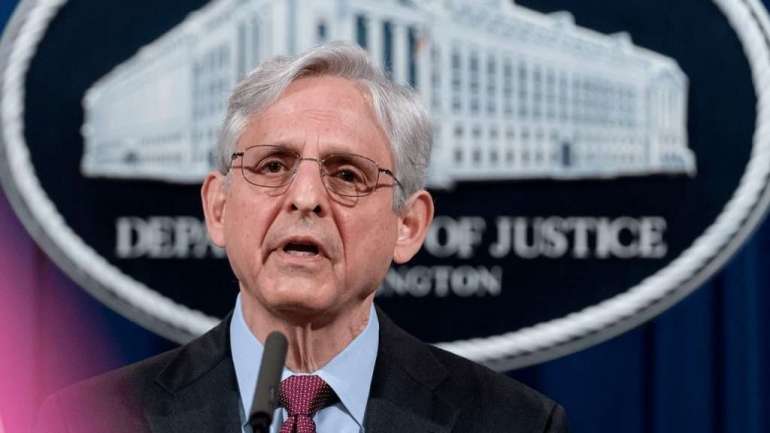Justice Department opens broad probe of Minneapolis police

While Garland’s predecessors in the Trump administration — Jeff Sessions and William Barr — rejected the notion of widespread abuses of Black people by police, Garland struck a decidedly different tone Wednesday and suggested that such abuses are common.
“I know that nothing can fill the void that the loved ones of George Floyd have experienced since his death. My heart goes out to them and to all those who have experienced similar loss,” Garland said. “I know such wounds have deep roots and that too many communities have experienced those wounds first-hand.”
Under President Donald Trump, the Justice Department announced only one pattern-and-practice probe of a police department: an inquiry into policing in Springfield, Mass. Sessions and Barr said they believed such investigations tended to demonize and stigmatize police and that most officers’ conduct was free of racial bias. They also complained that the consent decrees that often resulted from such investigations effectively tied the hands of officers and sometimes led to increases in crime.
But critics, including civil rights groups, said the reluctance to open such broad inquiries left unchecked broad failures in training and accountability that predictably resulted in tragedies like Floyd’s death, which occurred after Chauvin pinned Floyd’s neck to the pavement with his knee for more than nine minutes.
Under the Obama administration, the Justice Department opened about two dozen pattern-or-practice investigations. The law allowing for such reviews was passed by Congress in 1994 in the wake of the videotaped beating of motorist Rodney King by Los Angeles police.
“I know that justice is sometimes slow, sometimes elusive and sometimes never comes. The Department of Justice will be unwavering in its pursuit of equal justice under law,” Garland added. “We undertake this task with determination and urgency, knowing that change cannot wait.”
The pattern-or-practice probe will be separate from a criminal investigation into Floyd’s death that the Justice Department launched last year, Garland said. Federal criminal charges related to the episode appear unlikely in light of Chauvin’s conviction for murder, but three other officers on the scene are facing lesser charges in a future trial.
Garland’s announcement indicated that Justice Department officials have done some preliminary work to assess potential deficiencies with Minneapolis police.
“It will include a comprehensive review of Minneapolis police policies training and use-of-force investigations,” the attorney general said, adding that the investigation will also look at excessive use of force against protesters and whether police act improperly towards citizens with “behavioral health disabilities.”
Garland took no questions following his statement, which was his first appearance in the department’s media briefing room before journalists since being sworn in a little over a month ago.
Senior Justice Department officials spoke to journalists later Wednesday about the probe. They declined to say how long the issue of a pattern-or-practice probe has been under discussion or to discuss deliberations on the issue during the previous administration. The officials did say Justice Department career attorneys have been in contact with civil rights groups and others in the Minneapolis area about their concerns about the department.
Justice Department officials, who spoke on the condition that they not be named or quoted, said personnel from the Civil Rights Division are already on the ground in Minneapolis and met with city officials Wednesday to discuss plans for the investigation, which will involve obtaining a vast amount of data from the police department about use-of-force incidents, training and disciplinary actions.
The Justice Department did not announce the pattern-or-practice investigation previously because of concerns about possibly interfering with Chauvin’s trial, a Justice official said. The three other police officers on the scene where Floyd died are facing criminal trials of their own, set to begin in August. Justice officials did not offer a clear explanation of why the prospect of that trial did not lead the department to hold off further on announcing a formal inquiry.